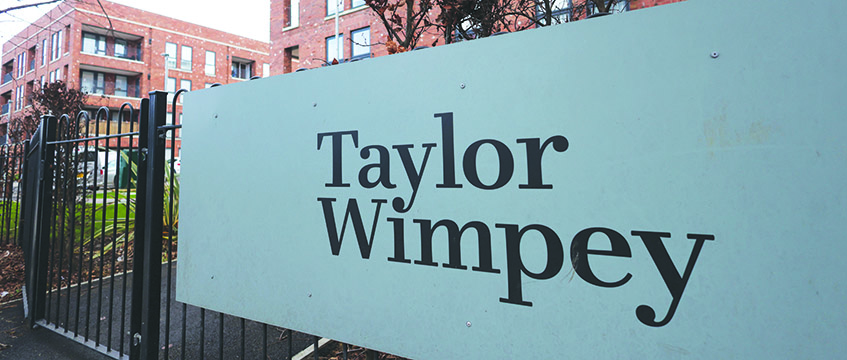Are we easing our way back?
With the global economic outlook uncertain, an election looming, and toxic debts rife, EG editor Damian Wild asked key industry figures for their views on when lasting recovery will come
Q. Is the recovery that we’ve seen in recent months assured?
Sir Stuart Lipton: “There are some worrying signs. In the period 2007-08, property led the market, and, when it does that, it usually gets into trouble. The property market then fell back, and now property is leading the market again.
With the global economic outlook uncertain, an election looming, and toxic debts rife, EG editor Damian Wild asked key industry figures for their views on when lasting recovery will come
Q. Is the recovery that we’ve seen in recent months assured?
Sir Stuart Lipton: “There are some worrying signs. In the period 2007-08, property led the market, and, when it does that, it usually gets into trouble. The property market then fell back, and now property is leading the market again.
I find that rather a worry, on the basis that property should be following the customer, the consumer, the financier. And it doesn’t seem to be doing that.
“On the other hand, we’re clearly not going into the abyss, as looked possible a year ago. I think a double-dip recession is unlikely but I do worry about how long it will take to go from trough to peak. In the last cycle, trough to peak in lettings took about five years.”
Bob Barnett: “I think the recovery is sustainable, provided that the banks manage the flow of properties coming to the market. I worry that there is so much leveraged debt still out there that has not been dealt with. So, there could be a flood of properties hitting the market through forced sales in this financial year. There’s too much debt. The banks have a huge responsibility to manage what happens with that debt. But, provided it’s managed carefully, yes, recovery is sustainable.”
Q. Will banks manage the flow of properties to the market?
Mike Smith: “The banks are acutely aware that, because they’ve got so much property on their books, or they’re lending against so much over-leveraged property, that it would be completely self-defeating to try to bring it all to market in one go.
“And, the two biggest UK banks have a heavy government influence on them, which will constrain them a bit – not at a detailed micro-level, but at the macro level. So, I think it will be a managed process, but it won’t be a very steep recovery either.
“In a way, that’s the dilemma for the market. If we had a short period of more intense pain then we might get a more robust recovery after that, but, I suspect that the overhang is going to take so long to clear that, actually, we’ll see a very anaemic recovery for several years.”
Q. Is the influence of banks overplayed?
Mike Smith: “People often talk in shorthand about the banks controlling all this property, but actually, the banks may have the economic interest in it, but, as a general rule, they don’t control it.
“One of the reasons that the banks haven’t released a flood of properties onto the market is because the interest rates are so low, so a lot of borrowers may be completely underwater in terms of loan-to-value ratios, but they can manage to service the interest, and, in such circumstances, there’s no real incentive for the banks to crystallise their losses unless they believe the market is about to plunge further.
“So hanging on and doing nothing may be quite a rational strategy, even if it can’t last forever, which is why there’ll probably be a very prolonged period of work-out for some of these assets. But it will be an opportunity for people who can bring both equity in, and some management expertise, to unlock some of those situations and make the fundamentals better.”
Q. Do you expect the occupier and investment markets to fall into line with each other?
Bill Hughes: “The occupier market dislocation from the investment market cannot go on for very much longer. Those two things have got to come together, and I don’t hold out a whole lot of hope that the occupier market will strengthen in the immediatefuture. Therefore, that’s when you start to think about the overall trend we’re seeing in the market being unsustainable.
“It’s going to be a very difficult couple of years, particularly as leases are shortening and it’s going to be harder for us to let real estate, in my view. The strategy of ‘delay and pray’ is doomed on much of the real estate that’s out there because, even if the value of the property is below the value of the loan that’s impaired, there’s every chance it’s going to get quite a lot worse.”
Q. Can the market look beyond the short term at the moment?
Charles Maudsley: “Unlike the 1980s, you now have the dual dynamic where much of the market is driven by short-term capital, both equity and debt, and many portfolios have annual performance targets, as opposed to a five-year rolling target.
“Most property is better suited to a three-to-five-year strategy which can conflict with the short-term nature of capital flows and performance targets. You only need a change in sentiment, and this can cause short-term performance spikes that don’t necessarily reflect the underlying real estate fundamentals.
“We are witnessing this in some parts of the market today. The funds/investment vehicles with a secure financial structure, strong asset management teams and stable investor base that allows the implementation of medium-term strategies should be the winners in the forthcoming period.”
Q. Is the Bank of England right to pause its policy of quantitative easing?
Richard Jones: “If there hadn’t been an end to quantative easing, it would have increased inflationary pressures in the economy and that could have been a negative factor for property. The Bank probably paused at the right time, but the jury’s out as to whether the recession is all over.”
Q. Given the level of market uncertainty, is accurate forecasting even possible?
Paul McNamara: “Although we have to do it, we tend to find year-on-year forecasting a bit of a mug’s game. Who knows exactly how this is going to pan out? But we always work on the basis of markets returning back to some sort of equilibrium within around five years, because that’s about as far as we can have any views on the short-termdynamics. By and large, our view would be that the markets are now pretty much back to fair value, and back from being demonstrably cheap.”
Q. Are there other macro-economic worries on the horizon?
Rob Bould: Reviving the economy is like turning around an oil tanker. Quantitative easing takes time to kick in and the pausing of it will take time to kick in as well. The thing that we’re probably most concerned about on a macro-scale is what happens with Greece and Portugal? There could be huge shocks for the European economy, and for the UK, although we’re not in the euro, and for the property market, because it would affect capital flows, certainly from Europe, but also from everywhere around the world, into the UK.”
Q. Where are the opportunities for property investors?
Robert Hodges: “I think the recovery that has happened, in terms of asset prices, is not going to go away. There’s still a lot of equity coming into the market, which is going to sustain that.
“Put in a pan-European perspective, it is a good time to be investing in the UK. Exchange rates are very favourable, and that’s been driving a lot of people.”
“Germany’s a significant market. There is a huge question mark as to what’s going to happen with the Spanish economy. Spain has some of the difficulties that have been shared by Ireland. We think the UK and France are going to be big markets, but there are a lot of uncertainties out there still. We’re trying to be careful.”
Attendees
Sir Stuart Lipton Deputy chairman, Chelsfield Partners LLP
Mike Smith, major corporates real estate Director, Lloyds Banking Group
Charles Maudsley Board director, British Land
Richard Jones Managing director, UK Real Estate, Aviva Investors
Bill Hughes Managing director, Legal & General Property
Robert Hodges Head of acquisitions, Carlyle Europe
Rob Bould, chief executive, GVA Grimley
Paul McNamara Head of research, PRUPIM
Bob Barnett, head of corporate recovery, GVA Grimley










